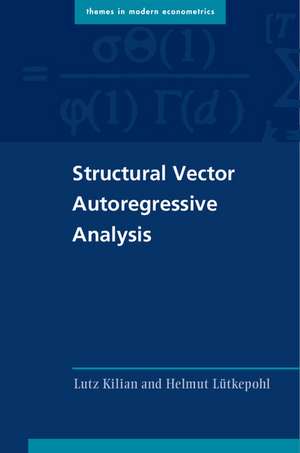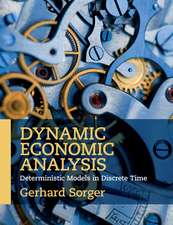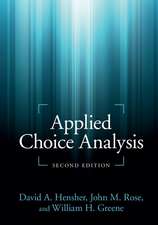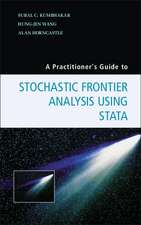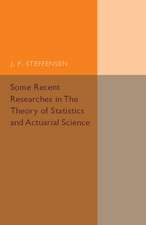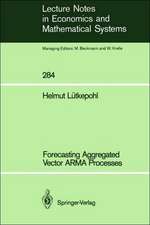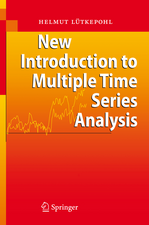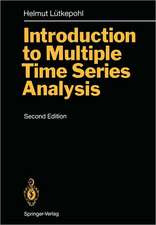Structural Vector Autoregressive Analysis: Themes in Modern Econometrics
Autor Lutz Kilian, Helmut Lütkepohlen Limba Engleză Paperback – 22 noi 2017
| Toate formatele și edițiile | Preț | Express |
|---|---|---|
| Paperback (1) | 430.50 lei 3-5 săpt. | +40.26 lei 7-11 zile |
| Cambridge University Press – 22 noi 2017 | 430.50 lei 3-5 săpt. | +40.26 lei 7-11 zile |
| Hardback (1) | 1098.03 lei 6-8 săpt. | |
| Cambridge University Press – 22 noi 2017 | 1098.03 lei 6-8 săpt. |
Din seria Themes in Modern Econometrics
-
 Preț: 273.26 lei
Preț: 273.26 lei - 14%
 Preț: 1091.50 lei
Preț: 1091.50 lei -
 Preț: 351.11 lei
Preț: 351.11 lei -
 Preț: 372.21 lei
Preț: 372.21 lei -
 Preț: 452.26 lei
Preț: 452.26 lei -
 Preț: 383.48 lei
Preț: 383.48 lei -
 Preț: 349.80 lei
Preț: 349.80 lei -
 Preț: 288.37 lei
Preț: 288.37 lei -
 Preț: 434.64 lei
Preț: 434.64 lei -
 Preț: 434.12 lei
Preț: 434.12 lei -
 Preț: 421.95 lei
Preț: 421.95 lei - 14%
 Preț: 1012.27 lei
Preț: 1012.27 lei -
 Preț: 348.02 lei
Preț: 348.02 lei - 11%
 Preț: 646.47 lei
Preț: 646.47 lei -
 Preț: 263.32 lei
Preț: 263.32 lei - 11%
 Preț: 447.69 lei
Preț: 447.69 lei -
 Preț: 319.61 lei
Preț: 319.61 lei
Preț: 430.50 lei
Preț vechi: 467.93 lei
-8% Nou
Puncte Express: 646
Preț estimativ în valută:
82.39€ • 89.46$ • 69.20£
82.39€ • 89.46$ • 69.20£
Carte disponibilă
Livrare economică 01-15 aprilie
Livrare express 18-22 martie pentru 50.25 lei
Preluare comenzi: 021 569.72.76
Specificații
ISBN-13: 9781316647332
ISBN-10: 1316647331
Pagini: 754
Ilustrații: 40 b/w illus.
Dimensiuni: 151 x 227 x 41 mm
Greutate: 1 kg
Editura: Cambridge University Press
Colecția Cambridge University Press
Seria Themes in Modern Econometrics
Locul publicării:New York, United States
ISBN-10: 1316647331
Pagini: 754
Ilustrații: 40 b/w illus.
Dimensiuni: 151 x 227 x 41 mm
Greutate: 1 kg
Editura: Cambridge University Press
Colecția Cambridge University Press
Seria Themes in Modern Econometrics
Locul publicării:New York, United States
Cuprins
1. Introduction; 2. Vector autoregressive models; 3. Vector error correction models; 4. Structural VAR tools; 5. Bayesian VAR analysis; 6. The relationship between VAR models and other macroeconometric models; 7. A historical perspective on causal inference in macroeconometrics; 8. Identification by short-run restrictions; 9. Estimation subject to short-run restrictions; 10. Identification by long-run restrictions; 11. Estimation subject to long-run restrictions; 12. Inference in models identified by short-run or long-run restrictions; 13. Identification by sign restrictions; 14. Identification by heteroskedasticity or non-gaussianity; 15. Identification based on extraneous data; 16. Structural VAR analysis in a data-rich environment; 17. Nonfundamental shocks; 18. Nonlinear structural VAR models; 19. Practical issues related to trends, seasonality, and structural change; References; Index.
Recenzii
'The book by Kilian and Lütkepohl will become the new benchmark textbook for teaching structural vector autoregressive analysis. This book thus devotes considerable space to the issue of identification, including sign restrictions, to Bayesian methods, to Factor Vector Autoregressions and to non-fundamental shocks. These are key to understanding much of recent research. The authors do an excellent job of assembling and lucidly explaining it all. This book is destined to become a classic.' Harald Uhlig, University of Chicago
'Structural vector autoregressions (SVARs) are an essential tool in empirical macroeconomics. This book provides a thorough and long-overdue digest of a literature that has been thriving for over 35 years and seen a lot of exciting developments in the past decade. The authors masterfully blend theoretical foundations, guidance for practitioners, and detailed empirical applications. This is a must-read for anyone working with SVARs.' Frank Schorfheide, University of Pennsylvania
'Structural vector autoregressions (SVARs) are an essential tool in empirical macroeconomics. This book provides a thorough and long-overdue digest of a literature that has been thriving for over 35 years and seen a lot of exciting developments in the past decade. The authors masterfully blend theoretical foundations, guidance for practitioners, and detailed empirical applications. This is a must-read for anyone working with SVARs.' Frank Schorfheide, University of Pennsylvania
Notă biografică
Descriere
This book discusses the econometric foundations of structural vector autoregressive modeling, as used in empirical macroeconomics, finance, and related fields.
